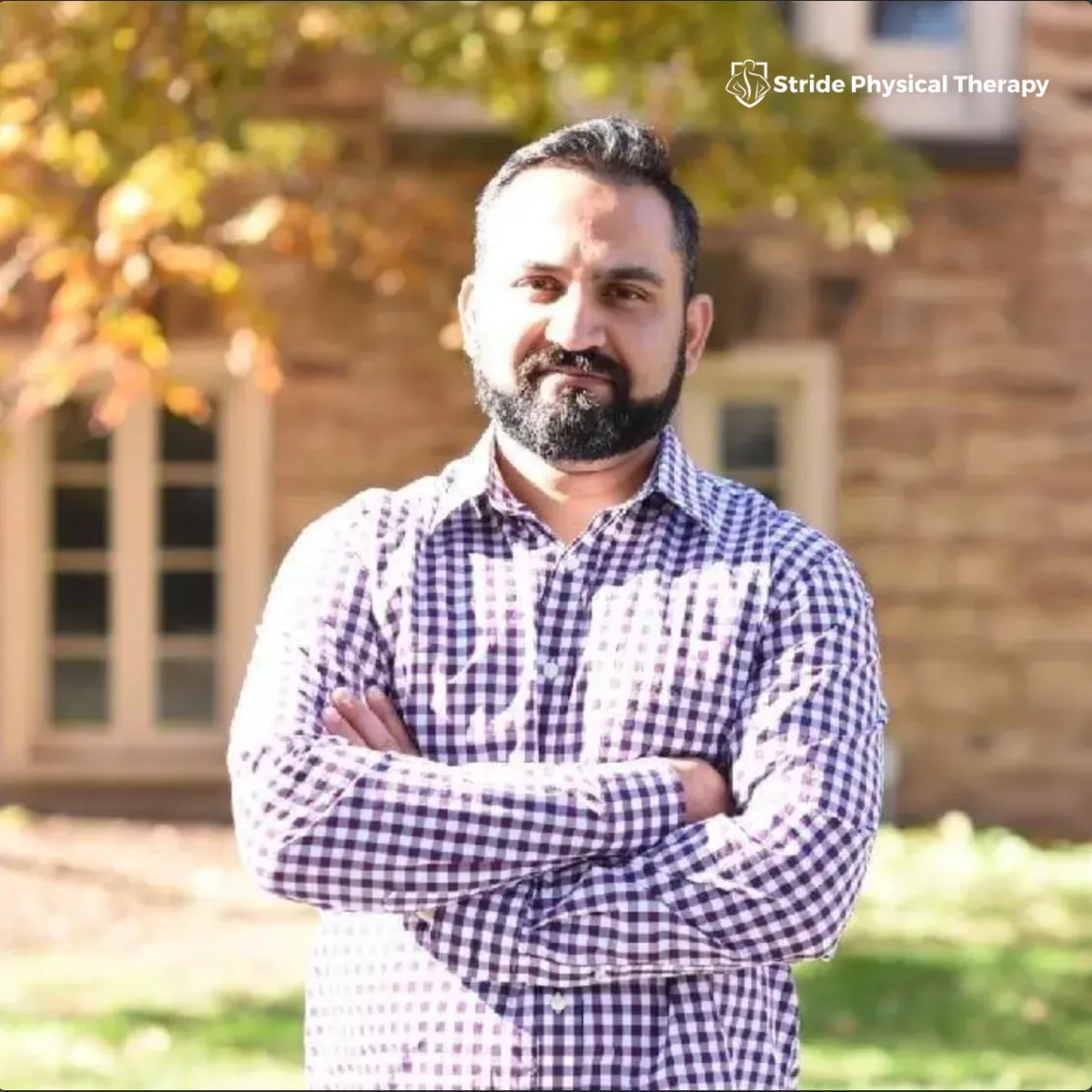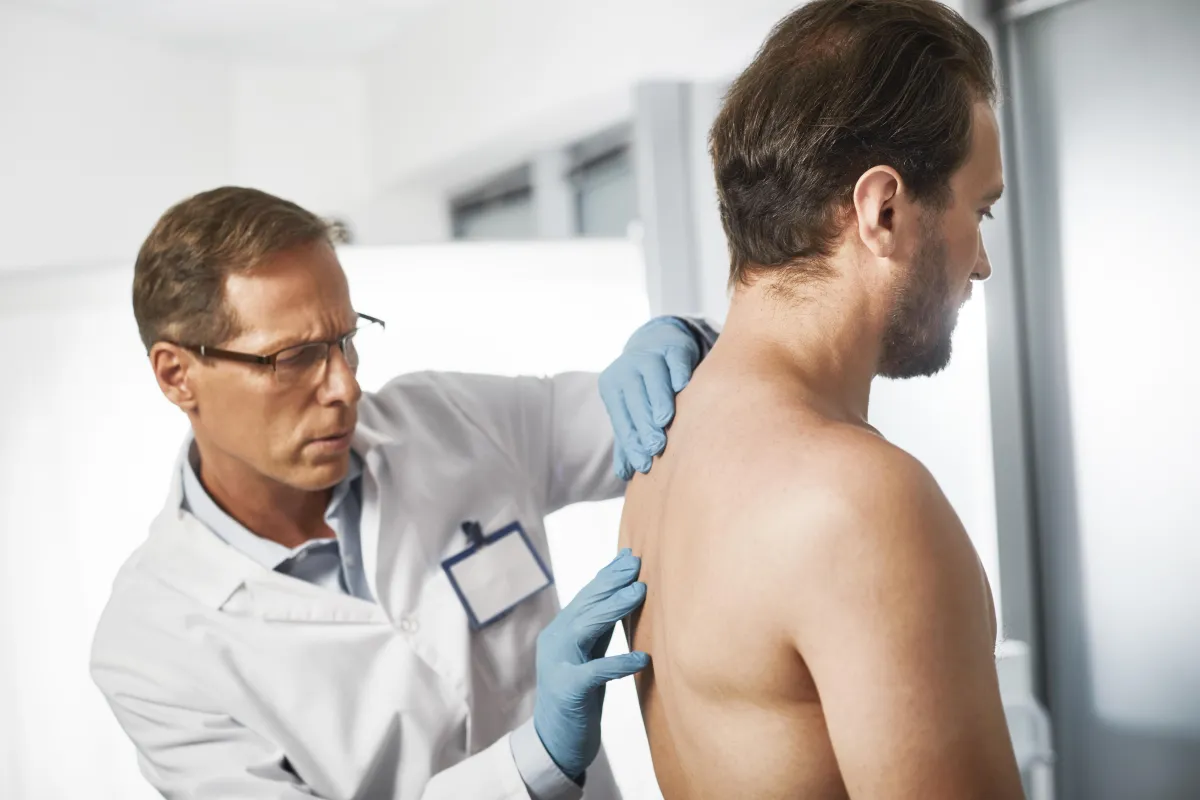Parkinson's disease makes everyday interactions challenging for those affected by this relentless condition that worsens over time. Our expert, board-certified neurologists and neurosurgeons, along with a specialized team in speech, occupational therapy, and nutrition, strive to enhance our patients' quality of life and autonomy. We are dedicated to guiding patients and their families every step of the way through their treatment journey.
Risk Factors for Parkinson’s Disease
Parkinson's disease arises from unknown origins, yet it may result from a mix of genetic aspects, like having relatives with the condition. It's more common in men and usually starts at age 60 or older. However, it can also occur before 40 in about 10% of instances.
Parkinson’s Disease Symptoms
Parkinson's disease symptoms vary from person to person; early signs might be subtle and overlooked. Initially, one might not swing their arms while walking or speak in a softer, mumbled tone. As Parkinson's progresses, since it's a disease that worsens with time, these symptoms will intensify.

Quick Links
FAQs
Signs and symptoms of Parkinson’s include:
1. Experience shakes and unintended shaking of arms, legs, and chin.
2. Feel muscle firmness and decelerated motions.
3. Notice a decrease in natural and reflexive movements.
4. Encounter balance issues and an unsteady gait.
5. Face feelings of depression and memory problems.
6. Observe alterations in speaking and writing abilities.
Parkinson's disease progresses in stages: mild, moderate, and advanced. Not everyone reaches the advanced stage. In the mild stage, symptoms are subtle and don’t interfere with daily activities, typically lasting 3-7 years. The moderate stage has noticeable effects, altering speech, making swallowing harder, increasing fall risk, and leading to small shuffling steps. In the advanced stage, treatments often don't work, and many require constant care, being confined to a bed or wheelchair.
Parkinson's disease develops through three stages: mild, moderate, and advanced, although not all patients experience the advanced phase. During the mild stage, which usually persists for 3-7 years, symptoms are minor and don't disrupt daily life. The moderate stage symptoms become more evident, affecting speech and swallowing, increasing the chance of falls, and causing small, shuffling steps. In the advanced stage, treatments tend to be ineffective and constant care may be necessary, often resulting in being bedridden or wheelchair-bound.
MEET YOUR RECOVERY TEAM

Kanwal Bhardwaj
PT, M.Sc.PT, CIMT, CMNT
Meet Kanwal Bhardwaj, PT, M.Sc.PT, CIMT, CMNT, the driving force behind Stride Physical Therapy in Freehold, NJ. With over 20 years of dedicated experience in the field, Kanwal brings a wealth of expertise and a passion for holistic healing to his practice. Kanwal's journey began with a Master of Science in Orthopedic Physical Therapy from Quinnipiac University in 2004. Over the years, he honed his skills and gained invaluable insights during 18 years of service in outpatient physical therapy offices. In 2014, fueled by a desire to deepen his understanding of patient care, he pursued a manual therapy certification (CIMT). This transformative experience allowed him to adopt a whole-body perspective, focusing on treating the root cause rather than just the symptoms...
At Stride Physical Therapy, we're dedicated to transforming lives. With a focus on the root cause of your condition, we're here to help you regain mobility and embrace an active lifestyle. What sets us apart? Our genuine passion for what we do. Let's stride towards a brighter tomorrow together.
Elevate Your Health with Our All-Inclusive Wellness Services!
Take one step closer to a pain-free life with Stride Physical Therapy! Discover medication and surgery-free solutions with our sessions.
Health Blog

Looking to Improve Your Physical Health? Here are 6 Ways Physical Therapy Can Help
Are you struggling because of poor physical health? Your body's fitness is deeply connected to your happiness and mental state. Mayo Clinic research shows that active people often have longer lives and enjoy perks such like losing weight, building muscles, and having better health in general.
It might be tough to start exercising more, but a physical therapist can make it easier. Discover how Stride Physical Therapy's physical therapy can enhance your health:
1. Physical Therapy Treats Both Acute and Chronic Pain
Physical therapy helps greatly with both sudden and long-term pain. MoveForwardPT says that being more active can make you feel up to 28% less pain. When patients know why they hurt and how therapy will assist them, they're more apt to find relief from their pain through treatment.
2. Physical Therapy is a Safe, Natural, and Non-Invasive Option
Physical therapy offers a safe and non-invasive alternative to pain management, reducing the need for pain medications and surgery. It lowers the risk of infections, complications, and side effects, presenting a safer option than opioids and surgical treatments.
3. Physical Therapy Decreases the Risk of Injuries and Cardiovascular Problems
Strengthening muscles and joints through physical therapy can reduce the risk of injuries in everyday activities. Stronger muscles recover faster, decreasing the likelihood of repetitive stress injuries. An active lifestyle also helps protect against major health issues like stroke and heart attack.
4. Physical Therapy Helps Heal Damaged Tissues
A 2018 study by the American Physical Therapy Association (APTA) found that physical therapy holds promise in treating tissue damage, such as meniscal tears. This suggests additional benefits for other tissue injuries, helping those with injuries or a history of injuries improve stamina and overall function.
5. Physical Therapy Provides Energy Boosts
Physical therapy improves range of motion and activity levels. According to Harvard Health Publishing, increased activity is linked to higher energy levels. Patients with pain often experience greater mobility and energy with less discomfort through physical therapy.
6. Physical Therapy Enhances Mood and Reduces the Risk of Mental Illness
Physical therapy and consistent exercise improve your mental well-being and brighten your mood, says the National Institutes of Health. Feeling better mentally can decrease your chances of suffering from anxiety, depression, and other emotional challenges. Plus, if you're in good mental shape, you're less prone to pain and swelling.
Start enjoying these benefits in your life now!
Physical therapy boosts health naturally, steering clear of drug side effects. Get the full perks safely with a qualified therapist. Choose Stride Physical Therapy in Freehold, NJ, for better health!
Need more info or ready to book? Visit our site or ring us up. Take the first step towards a healthier, painless life with Stride Physical Therapy.


